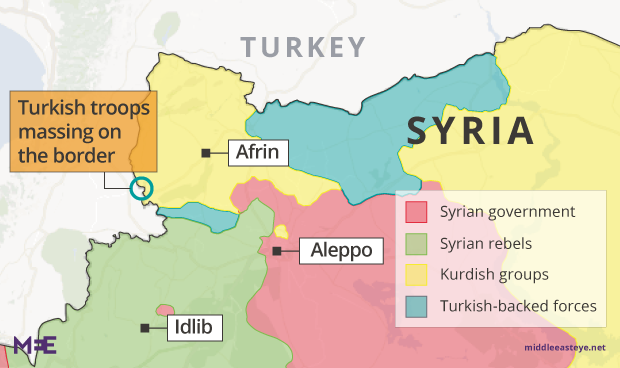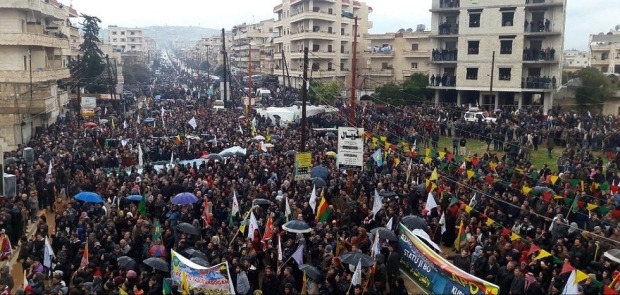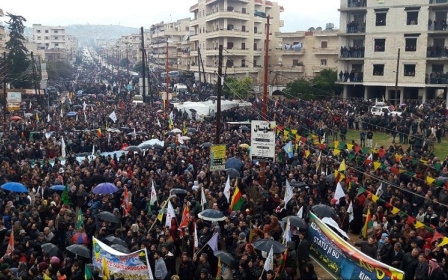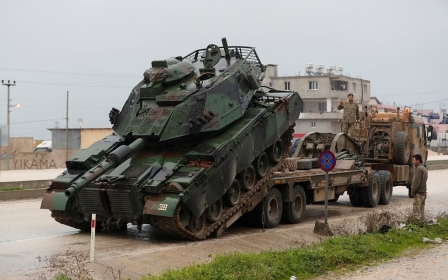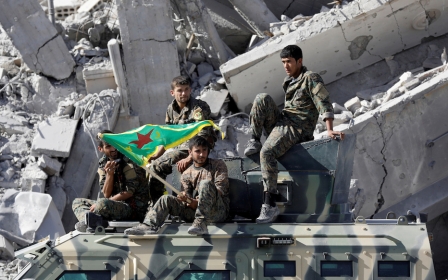Turkey shells Afrin as it awaits removal of Russian military observers
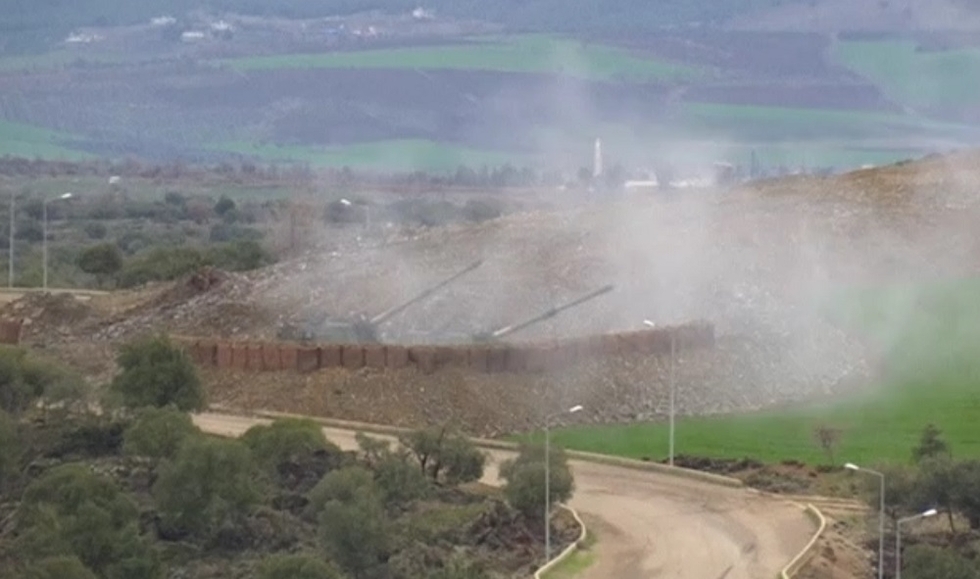
ISTANBUL, Turkey – Turkey shelled Afrin on Friday amid reports Russian military observers were withdrawing from the Syrian-Kurd canton, in a move that would allow Turkish forces to launch a ground assault on Kurdish militants.
Russia has based military observers in Afrin since 2015, and the subject of their removal was part of negotiations between Turkey and Russia yesterday over what the Turkish president, Recep Tayyip Erdogan, said was a matter of national security.
Turkish media reported that approximately 180 Russian observers were pulling back from their positions on the Afrin/Turkish border, hours after Turkish artillery began what Ankara said was the "de facto" start of operations against members of the Kurdish YPG militia, which it considers part of the PKK terrorist group.
Russian Foreign Minister Sergei Lavrov was quoted on Friday as saying media reports about Russian military units withdrawing from Syria's Afrin region had been denied.
"These reports have been denied," RIA news agency quoted Lavrov as saying. He did not specify who had denied them.
But they came hours after Turkey’s defence minister on Friday said operations had started with shelling, and that a wider planned military offensive would take place despite US attempts to dissuade Ankara from such action.
"The Afrin operation will happen. We are optimising conditions for the operation," Nurettin Canikli said in televised remarks.
Canikli said shelling overnight by artillery - described as heavy by Kurdish militia - was the "de facto" beginning of operations that would move onto ground incursions.
The Turkish military has amassed forces and equipment along its border with Afrin and placed all military units in the area on high alert.
Local media reports on Thursday said concrete blocks from a wall built along the Syrian border were removed in 12 places to facilitate the movement of Turkish armoured units into Afrin.
"We have to create the ideal conditions to minimise potential losses. We will show such attention to detail at every stage of the operation," said Canikli.
"The threats directed towards Turkey are rising each passing day."
On Thursday, US State Department spokesperson Heather Nauert called on Turkey to reconsider military action in Afrin.
'We don't want them to engage in violence but we want them to keep focused on Daesh'
- Heather Nauert, US State Department spokesperson
"We would call on the Turks to not take any actions of that sort. We don't want them to engage in violence but we want them to keep focused on Daesh [an Arabic term used for the Islamic State group]," she said.
Her remarks came after Rex Tillerson, the US secretary of state, tried to calm Turkish nerves by saying a US military announcement about the construction of a Syrian border, mainly made up of Syrian Kurds, was misconstrued.
Turkey has dismissed US assurances.
"This operation will happen and the fight against terror will be carried out. Every country has its own policy on what is happening in Syria. They try to somehow influence groups there," said Canikli.
He also responded to the Syrian government’s warning that it would shoot down Turkish aircraft in its airspace.
"We know that Russia gives the regime massive support. We know the regime is limited in its capacity to do what it says on its own. It is very slippery ground," said Canikli.
Turkey’s chief of staff and intelligence chief had travelled to Moscow on Thursday. No statement was made on the reason for the visit or the outcome of the talks.
'This operation will happen and the fight against terror will be carried out'
- Nurettin Canikli, Turkish defence minister
So far Turkish forces and YPG fighters have been exchanging sporadic retaliatory artillery fire over the last five days.
Turkey’s state-run news agency on Friday reported that the US-backed Syrian Democratic Forces' (SDF) shelling struck two hospitals near the border town of Azaz where 12 mental patients in a psychiatric ward were injured. Four of the injured are said to be in critical condition.
Turkey says the SDF is just another name used for YPG forces, which it considers a terrorist organisation and an extension of the Kurdistan Workers’ Party (PKK).
The Turkish Dogan news agency said that Turkish-backed Free Syria Army fighters shelled YPG positions following the attack on the hospitals.
The Syrian Observatory for Human Rights, a Britain-based monitor of the war, said the mortar rounds were fired by the Syrian Democratic Forces, a US-backed alliance dominated by the Kurdish People's Protection Units (YPG).
But SDF spokesman Mustefa Bali denied that the alliance fired the rounds that hit the hospital.
Observatory chief Rami Abdel Rahman said most of the wounded were among the more than 100 patients being treated at the hospital, many for post-traumatic stress disorder resulting from Syria's near seven-year civil war.
The YPG in Afrin has vowed to resist against any Turkish invasion.
Turkish media reported that military planning for the assault was complete and two brigades and 5,000 FSA fighters were expected to participate.
Media reports also stated that General Ismail Metin Temel, a hero of Turkey’s Euphrates Shield military incursion into northern Syria in 2016, was handed charge of the Afrin offensive.
Turkey’s Euphrates Shield was launched on 24 August 2016 and cleared a roughly 2,000 square km area from IS and YPG control.
Ankara’s prime objective in Syria currently is to prevent the Syrian-Kurdish PYD/YPG group from forming a corridor along its border with Turkey that would stretch from the Iraqi border to the Mediterranean Sea.
New MEE newsletter: Jerusalem Dispatch
Sign up to get the latest insights and analysis on Israel-Palestine, alongside Turkey Unpacked and other MEE newsletters
Middle East Eye delivers independent and unrivalled coverage and analysis of the Middle East, North Africa and beyond. To learn more about republishing this content and the associated fees, please fill out this form. More about MEE can be found here.


